Disclosure: This article contains affiliate links. We may earn a commission from purchases at no extra cost to you, which helps our travel content.
They say life begins at the edge of your comfort zone. After 40 years of helping others secure their financial futures, I've found my own freedom in places where ATMs are scarce and Google Maps struggles to keep up. Dolisie—Congo's third-largest city and former colonial railway hub—isn't on most American travelers' radar. But this resilient community nestled between lush forests and rolling hills offers something increasingly rare in our hyperconnected world: genuine human connection untainted by tourism's commercial veneer.
Finding My Way in Dolisie's Rhythm
Landing in Dolisie feels like stepping into a different era—one where time moves according to human needs rather than digital notifications. The city awakened memories of my childhood in 1960s Birmingham: children playing impromptu baseball with makeshift equipment, elders holding court on porches, and the persistent hum of community life.
My first day, I wandered through the Grand Marché, camera in hand but mostly unused. Some travel experiences deserve full attention before being filtered through a viewfinder. The market vendors—primarily women balancing entrepreneurship with family responsibilities—reminded me of my late mother who raised us on her seamstress earnings. Their economic ingenuity would impress any financial advisor.
Navigating Dolisie requires comfortable footwear that can handle unpaved streets after rain. My waterproof hiking shoes proved invaluable during daily explorations, especially when afternoon showers transformed dirt roads into challenging terrain.
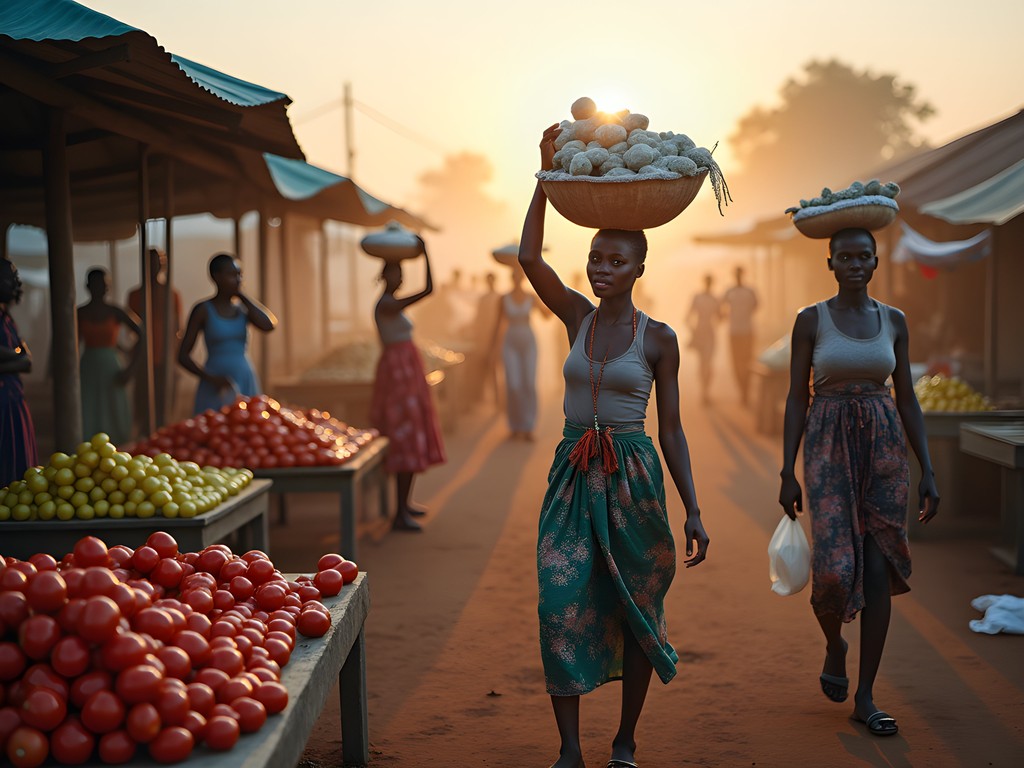
💡 Pro Tips
- Learn basic French phrases—English isn't widely spoken
- Visit the market early (6-8am) to see the best produce and avoid midday heat
- Carry small CFA notes for purchases—vendors rarely have change for large bills
Baseball Diplomacy in Unexpected Places
Baseball may not be Congo's national pastime, but that didn't stop me from packing my trusty portable baseball glove and a few baseballs. Throughout my travels, I've found that sports create instant connections across cultural divides.
Near the outskirts of town, I stumbled upon a group of teenagers playing soccer on a dusty field. With some hesitation, I approached with my glove and ball. Their curious looks turned to excitement as I demonstrated how to throw and catch. Within minutes, we'd improvised a makeshift diamond using stones as bases.
What followed was two hours of laughter, broken French, and the universal language of play. By the end, I'd gained local guides eager to show me their Dolisie—not the one briefly mentioned in outdated guidebooks, but the living, breathing community they called home.
One young man, Pascal, introduced me to his family who invited me for a home-cooked meal the following evening—an experience no amount of financial planning could purchase.
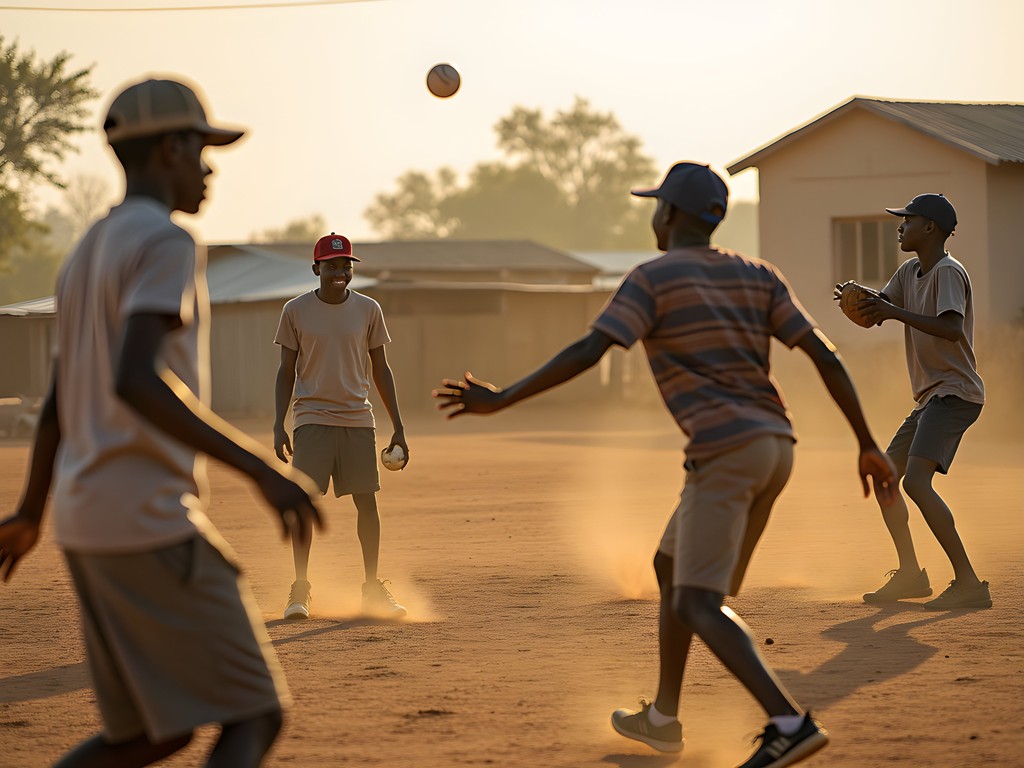
💡 Pro Tips
- Bring small gifts from your hometown to share with new friends
- Sports equipment makes excellent ice-breakers with local youth
- Accept invitations to homes when offered—these become the most authentic experiences
Forest Trails and Hidden Waterfalls
Dolisie sits at the edge of the Mayombe Forest, a lesser-known ecological treasure that deserves far more attention than it receives. Through connections made at a local café (where I'd become a regular for their exceptional coffee), I secured a guide named Jean-Pierre to explore the surrounding wilderness.
Before venturing into the forest, I made sure my insect repellent was applied liberally—Congo's forests host impressive biodiversity, including equally impressive mosquitoes. My quick-dry towel also proved essential for our waterfall visits.
The four-hour hike revealed a world of towering hardwoods, medicinal plants (which Jean-Pierre identified with encyclopedic knowledge), and eventually, a series of cascading falls where cool, clear water provided welcome relief from the humidity. We encountered no other tourists—just occasional local farmers who greeted us warmly.
What struck me most was Jean-Pierre's perspective on conservation. Like many financial advisors counsel about long-term investments, he spoke of the forest as their community's true wealth—one that required protection and sustainable management for future generations.
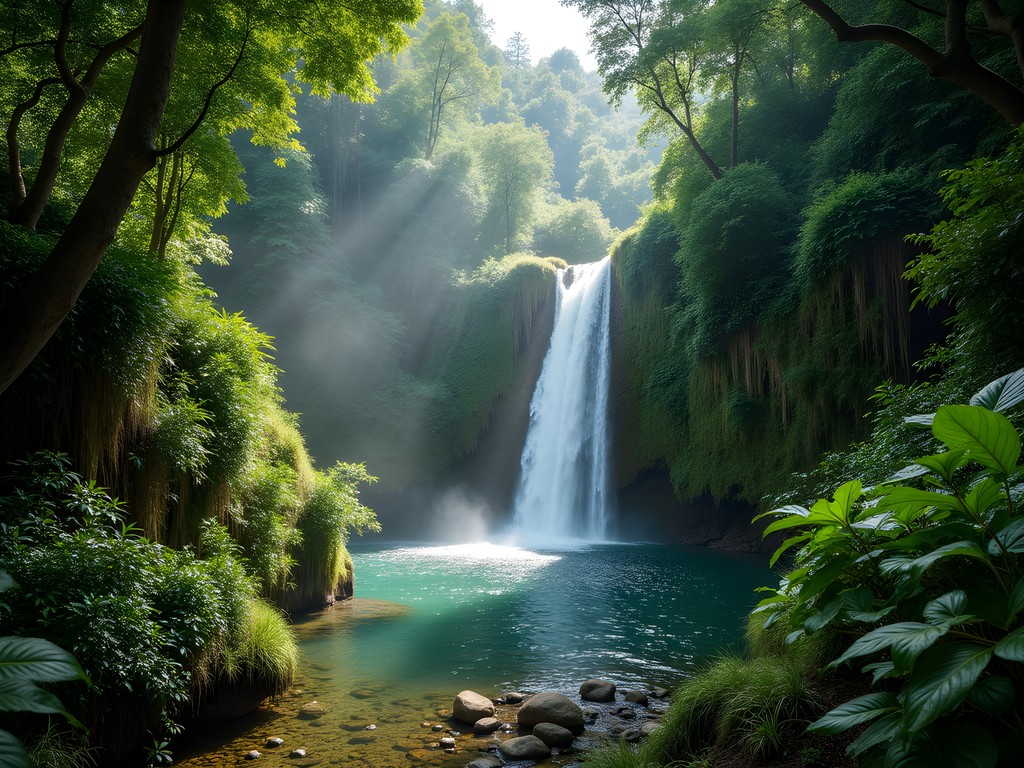
💡 Pro Tips
- Hire local guides through the small tourism office near Hotel Elaïs
- Start hikes early (7am) to avoid afternoon heat and rain
- Bring twice as much water as you think you'll need—the humidity is deceptive
Culinary Adventures: Beyond the Guidebook
If baseball is my first love while traveling, food exploration runs a close second. Dolisie's culinary landscape reflects its position as a crossroads city—traditional Congolese dishes mingle with influences from neighboring countries and colonial history.
The central market offers the freshest produce, but for prepared foods, I discovered that following office workers at lunchtime led to the most authentic eateries. One such place—little more than a covered patio behind a family home—served the best grilled fish I've encountered anywhere in Africa, accompanied by pili-pili (hot sauce) that would make any hot sauce aficionado weep with joy.
I always travel with my pocket food thermometer for street food adventures. It's earned me curious looks from vendors worldwide, but as someone who doesn't want digestive issues derailing travel plans, it's non-negotiable equipment.
Most memorable was my cooking lesson with Pascal's grandmother, who taught me to prepare fufu (cassava paste) and peanut stew. The physical labor of pounding cassava gave me newfound respect for the daily work of Congolese home cooks. No fancy kitchen gadget back home could replicate the authentic techniques I learned in her outdoor kitchen.
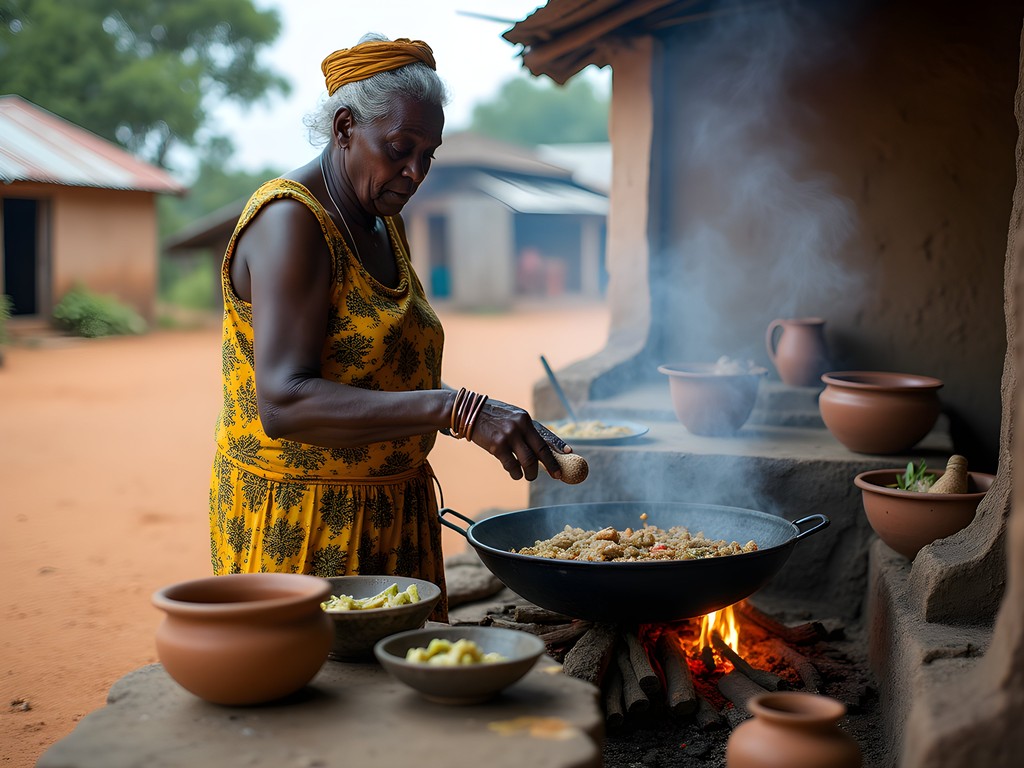
💡 Pro Tips
- Try palm wine (locally called 'malafu') but in moderation—it's stronger than it tastes
- Eat where locals eat, especially places filled with workers at lunchtime
- Bring a small notebook to record recipes—most cooks are flattered when you show genuine interest
Capturing Dolisie: A Photographer's Perspective
Street photography has become my meditation practice during travels, and Dolisie offered endless compositions of light, texture, and humanity. The colonial-era railway station—now mostly dormant but architecturally fascinating—provided a visual narrative of the city's economic history.
I've found my lens cleaning kit essential in humid environments like Congo, where fungus can quickly damage equipment. The red dust that seems to coat everything during dry season also demands regular maintenance.
Rather than chasing the perfect shot, I've learned to let images find me. Some mornings, I simply sat at a streetside café with my travel journal, making notes and waiting. Invariably, moments of visual poetry would unfold: women balancing impossible loads with perfect posture, the intricate choreography of motorbike taxis navigating narrow streets, or the afternoon light illuminating colonial buildings in golden hues.
When photographing people, I follow a principle that has served me well across cultures: connection before capture. A genuine conversation, however brief or limited by language barriers, transforms the dynamic from extraction to exchange. The portraits I value most from Dolisie came after shared moments—a joke, a meal, or simply sitting in companionable silence.
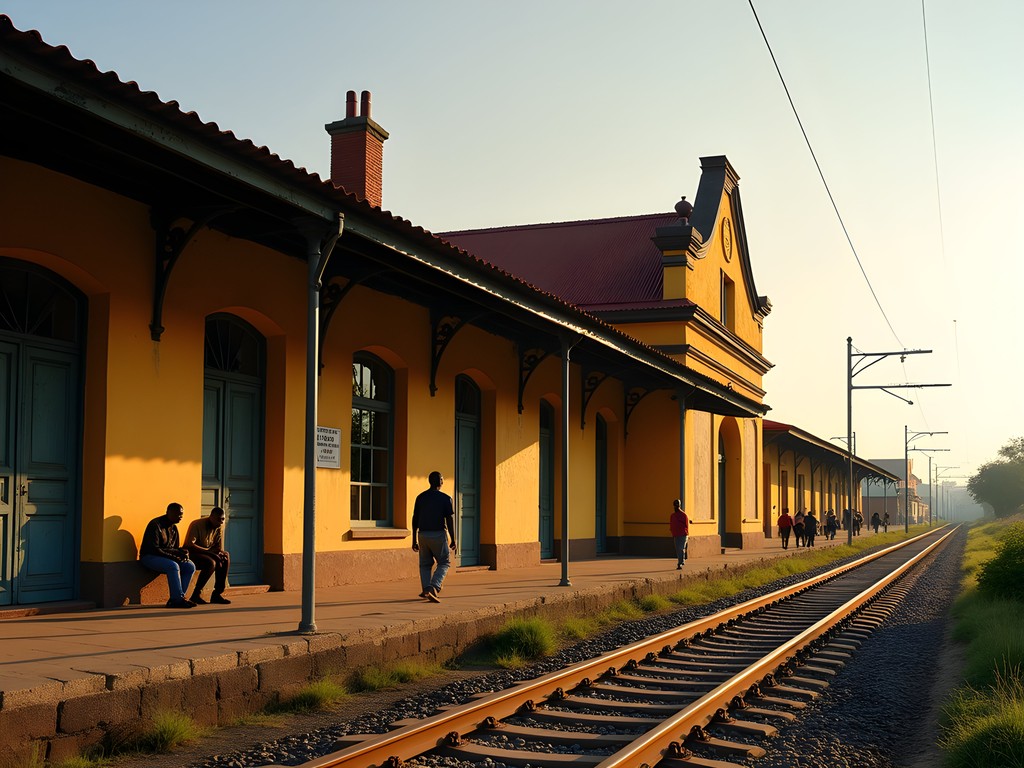
💡 Pro Tips
- Ask permission before photographing individuals, especially elders
- Early morning and late afternoon offer the best light for photography
- Protect your equipment from dust with sealable bags when not in use
Final Thoughts
As my week in Dolisie drew to a close, I found myself calculating value in ways my financial advisor brain typically doesn't. The wealth I accumulated couldn't be deposited in any bank: impromptu baseball games with laughing teenagers, the taste of perfectly spiced fish enjoyed under a mango tree, Jean-Pierre's encyclopedic knowledge of forest plants, and the rhythm of market negotiations conducted in my broken French.
Dolisie won't appear on many travelers' Instagram highlights. Its attractions won't make international 'must-see' lists. And that's precisely its value proposition. In a world where so many destinations have been packaged for mass consumption, places like Dolisie offer something increasingly rare: authenticity and human connection untainted by tourism's commercial imperatives.
I came seeking photographs and left with friendships. I arrived as a curious outsider and departed with invitations to return. Like the best financial investments, the most rewarding travel experiences often come from looking where others aren't—finding value overlooked by the crowd. Dolisie, with its warm people, rich culture, and minimal tourism infrastructure, offers exactly that kind of return.
✨ Key Takeaways
- Connect with locals through shared interests like sports or cooking to experience authentic cultural exchange
- Smaller, less-visited cities often provide more meaningful interactions than tourist hotspots
- Basic French language skills dramatically enhance the travel experience in Congo
- Local guides offer invaluable insights and access to hidden gems like forest waterfalls
📋 Practical Information
Best Time to Visit
June to September (dry season)
Budget Estimate
$30-50 per day including accommodation, food, and local transportation
Recommended Duration
5-7 days
Difficulty Level
Moderate
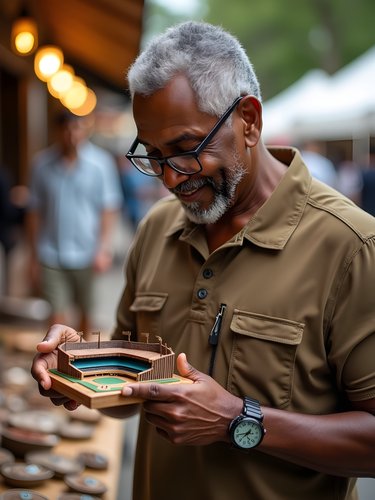
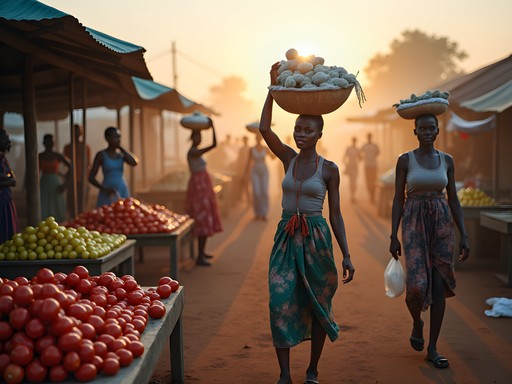
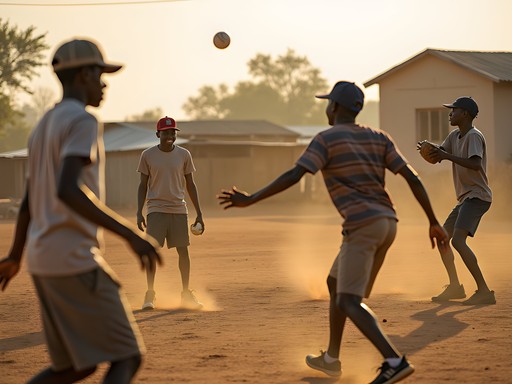
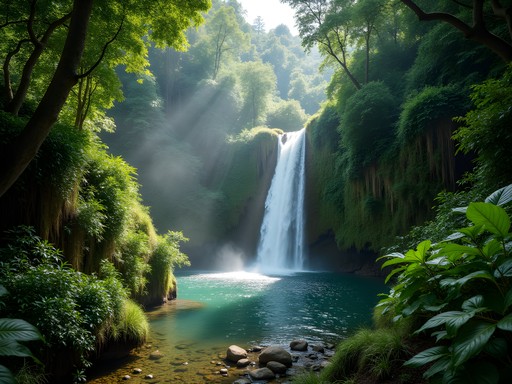
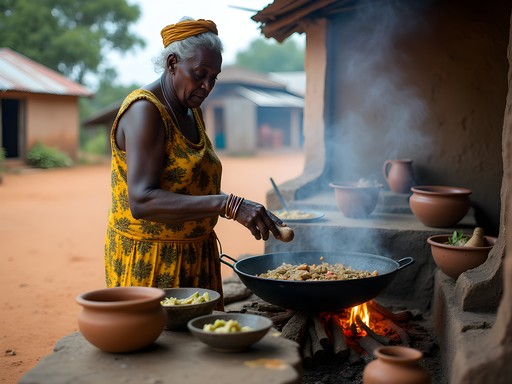
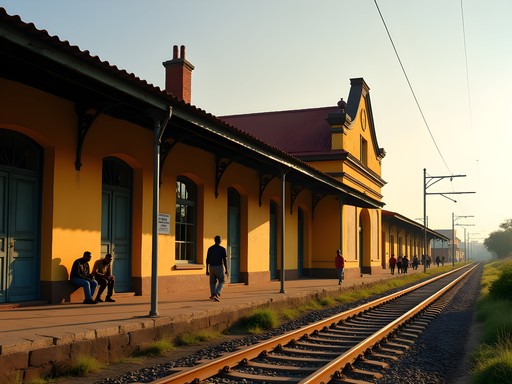


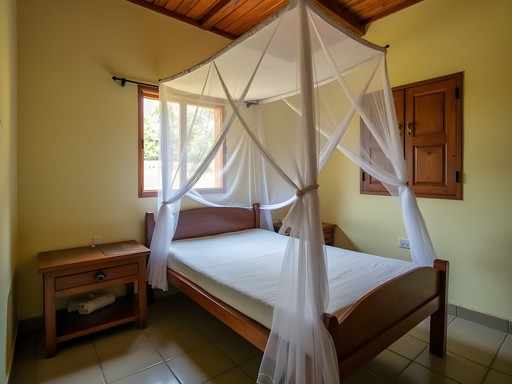
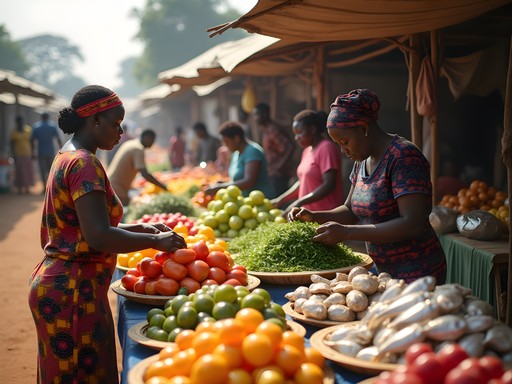
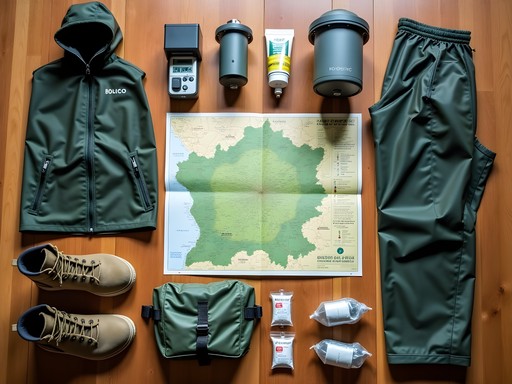
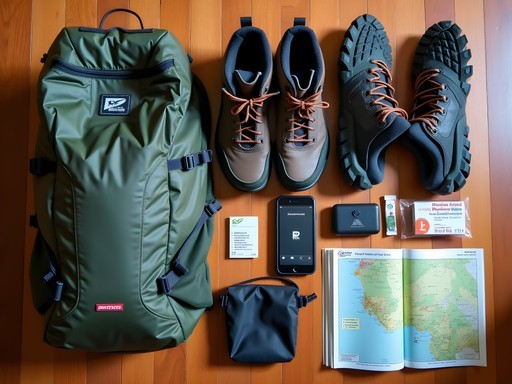
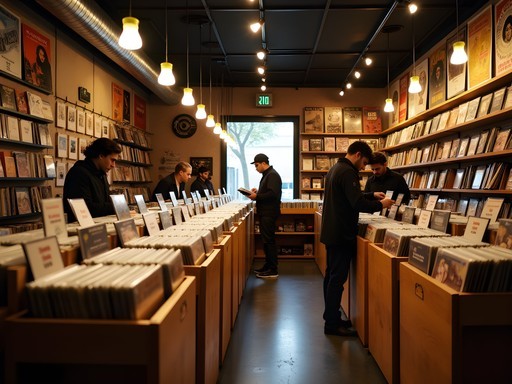
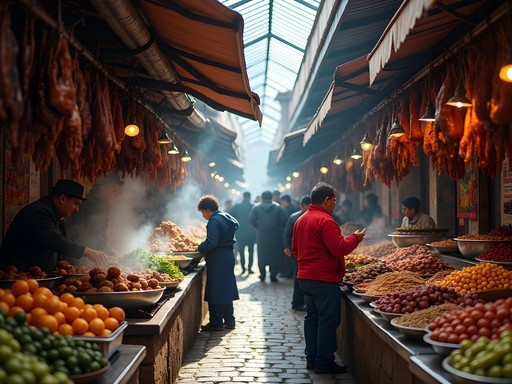
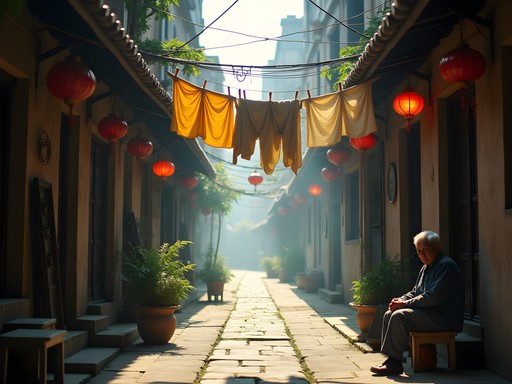
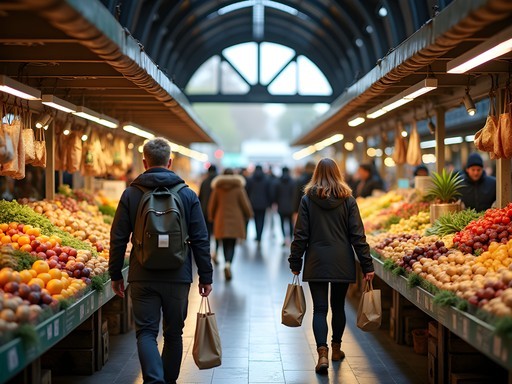
Comments
Casey Andersson
Frank, this really resonated with me. I spent three weeks in the Republic of Congo last year and had a similar awakening about what 'luxury' actually means. Your baseball diplomacy story is gold - I had something similar happen with a spontaneous football match in Pointe-Noire. There's something about sport that just transcends language barriers, isn't there? The culinary section has me wanting to go back immediately. Did you try the pondu? I'm still dreaming about it. Also, your photos captured that golden hour light through the forest canopy beautifully - what were you shooting with?
Frank Watson
Casey! Yes, the pondu was incredible - had it three times during my stay. And you're so right about sports being universal. I was shooting with just my iPhone actually, though I wish I'd brought my old Canon for some of those waterfall shots. The light there is just magical.
dreammaster
wait what's pondu??
Casey Andersson
It's cassava leaves cooked down with palm oil and often fish or meat - absolutely delicious and you'll find it everywhere in Congo. Total comfort food!
dreammaster
This is so cool!! Never even heard of Dolisie before
cityphotographer
How safe did you feel traveling around Dolisie? Been wanting to visit Congo but nervous about going solo
Frank Watson
Honestly felt very safe! The locals were incredibly welcoming. I'd recommend connecting with someone at your hotel who can introduce you to the area first - that really helped me get my bearings. Common sense applies like anywhere, but I never felt threatened.
cityphotographer
Thanks! That's really helpful
journeyhero
Love this! Not your typical travel blog stuff
Ahmed Palmer
Frank, this resonates deeply. I've found Central Africa to be one of the last truly authentic travel experiences available. Your point about calculating value differently really struck me - I spent three weeks in the region last year and found myself doing the same mental shift. The baseball diplomacy angle is fascinating. Did you find language barriers significant in Dolisie, or were you able to get by with French? I'm curious about the practical side of navigating without reliable connectivity. Also, your financial advisor background probably made you quite methodical about planning - how much did you arrange in advance versus figuring out on the ground?
Frank Watson
Ahmed, French was essential - my rusty high school French got a serious workout! I arranged accommodation for the first two nights only, then let things unfold. The baseball connection opened more doors than any guidebook could. Honestly, the lack of connectivity forced me to actually talk to people, which was the whole point.
Ahmed Palmer
That's the approach I'm leaning toward for my next trip to the region. Thanks for confirming it works!
sunnybuddy
Never even heard of Dolisie before but now I want to go! Those waterfall photos are incredible!
beachwalker
Do it! Just be prepared for very basic accommodations. Totally worth it though!
beachwalker
Frank!!! Your post brought back so many memories! I spent two weeks in Dolisie last year and those forest trails were MAGICAL. Did you try the palm wine with the local elders? That was such a special experience for me. And the baseball story - wow! I had no idea that was happening there. Those unexpected cultural crossovers are what makes travel so amazing. Your culinary section had me drooling - that cassava dish with the spicy fish was my absolute favorite too!
beachone
This looks amazing! How safe did you feel walking around Dolisie? And did you need any special vaccinations before going?
sunnybuddy
Not the author but I went to Congo last year. Definitely needed yellow fever vaccine and malaria pills. I used my mosquito repellent religiously!
beachone
Thanks for the tips! Adding those to my pre-travel checklist.
Douglas Bradley
Frank, your transition from financial advisor to intrepid traveler resonates deeply with me. I spent time in neighboring Gabon last year but missed Dolisie - clearly my mistake! The baseball diplomacy angle particularly intrigued me; these unexpected cultural intersections often become the most meaningful travel memories. Did you find the language barrier significant, or was French sufficient for meaningful interactions with locals? Your forest waterfall discoveries have me plotting a Central African itinerary for next spring.
beachwalker
Douglas, I was in Dolisie in 2024 and found basic French got me by pretty well! The locals really appreciate any effort. Some of the forest guides spoke decent English too.
Douglas Bradley
Thanks for the insight, beachwalker! Good to know about the guides - I'm comfortable with basic French but technical forest vocabulary might be beyond me!
Jennifer Rodriguez
Frank, this is refreshingly honest travel writing. Your transition from financial advisor to off-the-beaten-path explorer gives your perspective unique depth. I appreciate how you broke down the practical aspects of visiting Dolisie while capturing its essence. The transportation challenges you mentioned match my experiences in similar regions. For budget travelers considering this area: expect to pay around $25-40/night for decent guesthouses, and I'd recommend budgeting extra for guided excursions to those waterfalls (worth every penny). Did you find ATMs reliable there? That's always my biggest concern in remote locations.
Frank Watson
Thanks Jennifer! ATMs were scarce and unreliable in Dolisie. I brought euros to exchange at a local bank and kept a cash reserve hidden in different spots. Your budget estimates are spot on - I'd just add that negotiating is expected but should be done respectfully.
Venture X
Premium card with 2X miles, $300 travel credit, Priority Pass